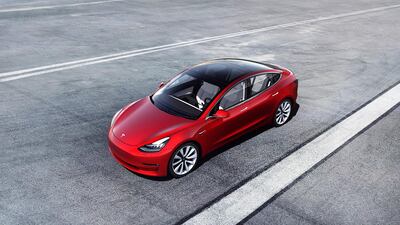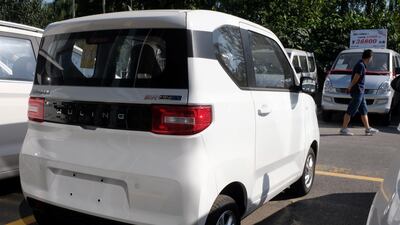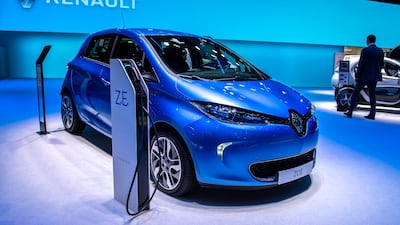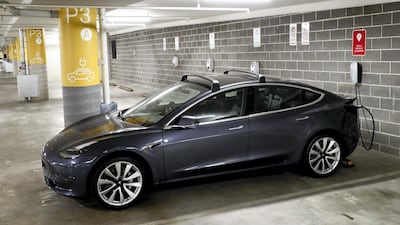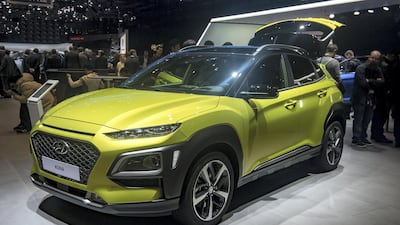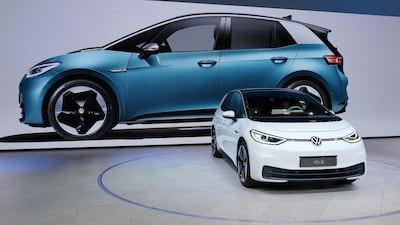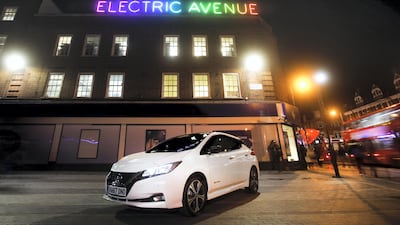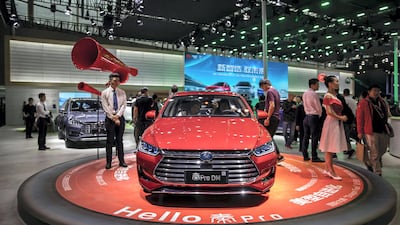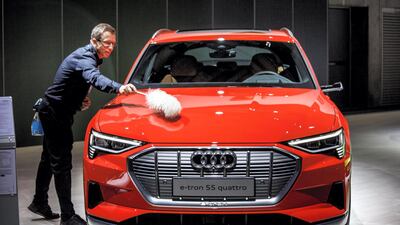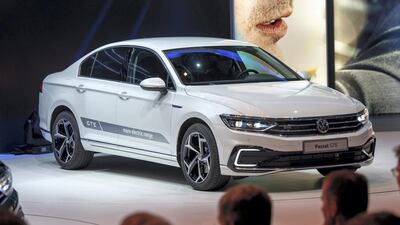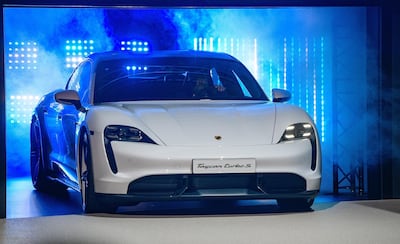Global electric car sales rose by a record 38 per cent in 2020, taking the total number on the world's roads to 10.9 million.
Dubai also saw a remarkable 95 per cent increase in electric car sales.
The surge confounds the Covid-propelled overall plunge in 2020, which data company JATO Dynamics estimates led to 7.7 million fewer cars sold in the top 11 global markets.
Although China remains the dominant force by an order of magnitude, its electric car sales grew just three per cent in 2020.
The meagre rise contrasts starkly with Germany where year-on-year sales jumped 264 per cent, from 108,530 to 394,632 registrations - the second highest number globally.
Germany’s electric influx was replicated across Europe. France and the UK performed strongly with 180 per cent and 140 per cent growth respectively, while sales in Denmark (245 per cent) and Italy (250 per cent) rocketed.
The picture in the US was far less green. Whilst the 177 million electric cars in its fleet mean it is still the second largest market behind China, sales actually dropped in 2020.
Why electric cars sales are growing faster in Germany
Sparkling electric car sales in Germany can be largely ascribed to its reduced VAT and stimulus packages - and it is stimuli which has ignited growth in Europe as states seek to meet their carbon reduction pledges.
State support can’t underpin the electric car transition for long, however, said Prof. Dr. Frithjof Staiß, managing director of German sustainable energy firm ZSW.
“To achieve the German government’s goal of putting seven to 10 million electric cars on the road by 2030 in an efficient way, these subsidised stimuli will have to gradually transition to market-driven growth,” he said.
“That will take around one million newly registered electric cars a year on average. The new EU climate action goal – which we can expect to be even more ambitious – is likely to require a far larger share of electric cars than previously targeted.
“That’s why [2020's] success is just a start.”
The biggest selling electric carmakers and models in 2020
German carmakers appear finally to be on board with Prof Staiß’s message, although their new-found resolve could be ascribed less to a desire to midwife a new generation of electric mobility, and more to a determination not to let Elon Musk eat both his cake and theirs.
The Silicon Valley mogul is building a gigafactory on the outskirts of Berlin in which he intends to make 500,000 Teslas a year - an incursion of breath-taking chutzpah given Germany's rich automotive heritage.

As part of the German fight back, Porsche has already brought out the all-electric Taycan and in February announced that by 2030 all of its cars would be electric.
Mercedes and Audi are also on the cusp of launching electric vehicles which aren’t just adaptions of pre-existing internal combustion engine (ICE) vehicles.
German carmakers' born-again electric evangelism is yet to see one of them overhaul Tesla in the electric car sales charts - but three are in the top six for 2020.
Tesla retained its lead in new registrations with 499,600 units while VW Group followed closely behind with 421,600.
Top 10 electric car brands in 2020: global sales
1. Tesla - 499,600
2. VW - 421,600
3. SAIC - 254,300
4. BMW - 192,600
5. BYD - 179,800
6. Daimler - 163,000
7. Hyundai - 148,100
8. Renault - 130,500
9. Geely - 126,200
10. PSA - 99,980
Tesla also remains top of the pile in model sales, too, in the shape of the Model 3.
Debuting in 2020 and sold exclusively in China, the Hongguang Mini EV (119,300) follows at a considerable distance, with the Renault Zoe (102,900) close behind.
The Volkswagen ID.3 (56,900) was the bestseller among German brands, taking sixth place.
The top 10 models can be seen in the list below and also in the gallery above.
Top 10 electric cars in 2020: global sales
1. Tesla Model 3 - 362,800
2. Hongguang Mini EV - 119,300
3. Renault Zoe - 102,900
4. Tesla Model Y - 79,700
5. Hyundai Kona - 65,100
6. Volkswagen ID.3 - 56,900
7. Nissan Leaf - 55,700
8. BYD Qin EV - 48,700
9. Audi e-tron - 47,900
10. Volkswagen Passat GTE - 47,100
Electric car sales in the UAE
Global electric car growth was reflected in the UAE with Government of Dubai data showing a near doubling in electric car registrations in 2020 compared to the previous year. The growth in the emirate is testament to the success of a raft of measures introduced in 2017 to encourage take-up.
The burgeoning UAE electric mobility market comes as no surprise to Kevin Chalhoub, founder of UAE electric vehicle store EV Lab, one of the rare people to find a silver lining from the Covid-infested last 12 months.
“[The pandemic] has brought awareness to consumers that collective action can solve bigger problems,” he said.
He sees increased electric car sales as a manifestation of a shifting mindset towards the greater good - but unlike other things which are good for us but not necessarily that pleasurable, Mr Chalhoub is convinced electric cars offer the best of both worlds.
“They perform better and accelerate faster,” he said.
“I like the fact that they are silent and that I can accelerate much faster in a Tesla than in a Ferrari. “I find [Ferraris] very egocentric and slow."
Mr Chalhoub believes that the UAE market is a great fit for electric mobility.
“There’s a big willingness to pay for luxury products here and electric vehicles are just that.
“The double-digit growth of electric car sales in Dubai during Covid is just amazing.”
Unsurprisingly Tesla dominates the market but Mr Chalhoub thinks it is still anyone’s game, especially given the hesitancy of the big global carmakers.
He is certainly ambitious. The Emirates has stated that by 2030 it wants 10 per cent of all vehicles on the road to be electric, yet Mr Chalhoub sees no reason why this target can't be increased..
The UAE could become the first country to go fully electric and export its knowledge to the rest of the Middle East and the world. he said.
In the year of the postponed Dubai Expo 2020, the stage is certainly set for the UAE to play a big role in shaping the global challenges faced by humanity - with sustainable mobility one of the biggest.
